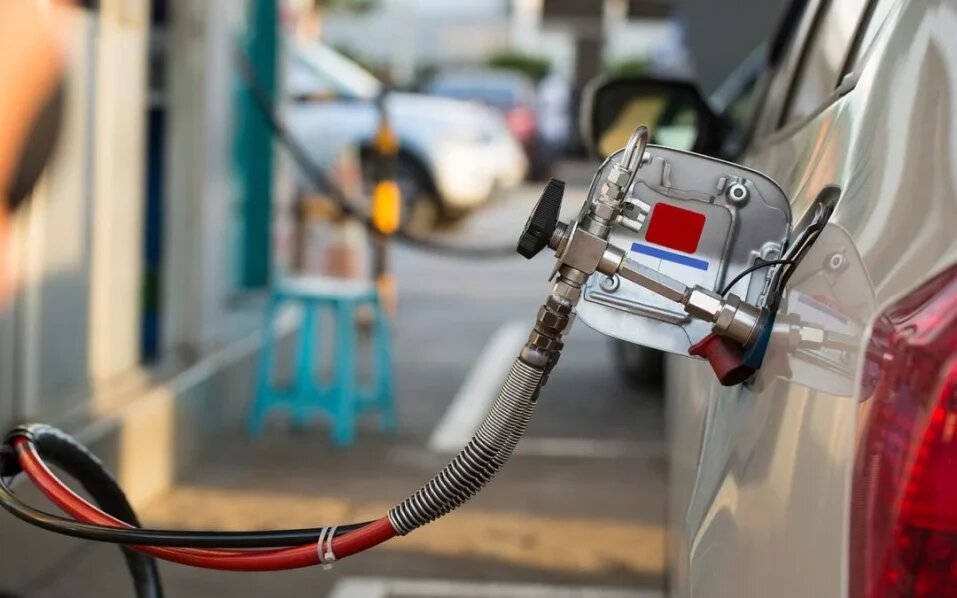Through a comprehensive approach that includes regulatory overhaul, grassroots support to its citizens, infrastructure expansion, and strategic partnerships with the private sector, Nigeria is recalibrating the use of its vast natural gas reserves.
“Nigeria’s motorists can buy petrol at N1,000 per liter or equivalent gas per Standard Cubic Meter at N200,” says H.E. Bola Ahmed Tinubu, President of The Federal Republic of Nigeria.
Beneath Africa’s soil, a natural gas reserve of over 800 trillion cubic feet can be found, from North Africa’s deserts to the verdant plains of the sub-Saharan region. Nigeria holds the largest reserve of this resource with a sheer volume of approximately 280 trillion cubic feet, ranking ninth globally and making it one of the few nations in the world that have the potential to drive the global shift from coal and oil to cleaner energy.
The West African country is now tapping into its natural gas reserve, 76% of which remains undeveloped, to promote economic growth, energy security, and global competitiveness.
In 2023, President Bola Ahmed Tinubu’s administration introduced the Presidential Compressed Natural Gas Initiative (Pi-CNG) to drive CNG adoption and ease Nigeria into a cleaner energy era. The initiative converts cars to be able to run on CNG with conversion discounts for e-hailing drivers and the deployment of bi-fuel buses and CNG tricycles.
Loading...
Over US$200 million has already been invested across the value chain of the scheme since its launch. In its drive to boost a gas-powered economy, the federal government has hosted the first-ever CNG Stakeholders and Investors’ Forum with a target to achieve conversions of one million vehicles to gas by 2027.

The Nigerian Independent Petroleum Company (NIPCO) supports the initiative through its ‘Switch to CNG’ campaign, driving a nationwide impact into transitioning to natural gas. A game changer for the country’s economy, the introduction of natural gas is already easing the financial burden of fuel prices on Nigerians.
An increasing emphasis on private sector-led endeavors characterizes the president’s approach to maximizing Nigeria’s gas potential.
“Nigeria’s motorists can buy petrol at N1,000 per liter or equivalent gas per Standard Cubic Meter at N200,” says H.E. Bola Ahmed Tinubu, President of The Federal Republic of Nigeria.
“Our administration’s Presidential Initiative on CNG Initiative is a flagship program by which we are actively supporting a private-sector-led rollout of critical gas infrastructure to drive innovation and industrialization in Nigeria.”
The president’s CNG initiative aims to create 25,000 jobs and attract $2.5 billion in investment by 2027. Increasing domestic market growth, the nation’s transition to CNG will reduce dependence on imported refined petroleum products.
Another initiative by the federal government is the Ride Share Compressed Natural Gas (CNG) Conversion Incentive Program which aims to provide accessible and affordable transportation for Nigerians. Simultaneously, the Nigerian National Petroleum Company Ltd has commissioned 12 Compressed Natural Gas stations in Abuja and Lagos to reduce transportation costs for Nigerians.
“We know that transportation is responsible for about 14-15% of what an average family spends,” notes Michael Oluwagbemi, Project Director and CEO of the Presidential CNG Initiative.
“CNG for the rideshare industry will mean our young people going to work, school, church, and mosque will be able to afford transportation. CNG is not just a revolution; it is about looking inward for the first time in a long time to use [natural] resources.”
Nigerians seeking credit to convert their cars or build solar systems to power their homes can apply for credit at the Nigerian Consumer Credit Corporation (CREDICORP), which has introduced the Credit Access for Light and Mobility (CALM) Fund.

Providing the foundational structure and guidelines to plan and implement natural gas projects, Tinbu’s administration has launched policy directives that focus on the monetization of Nigeria’s gas resources and the timely execution of projects. The directive aims to compress project contracting cycles from 36 months, at present, to less than six months, increasing the efficient delivery of gas-related projects.
“Nigeria’s gas deposit translates to over US$800 billion and when this is fully harnessed, it will impact our economy directly. We have only accessed a paltry 1.7%, and this shows we are still yet to fully take advantage of this sector,” says Hon. Obongemem Ekperikpe Ekpo, Minister of State for Petroleum Resources (Gas).
An increasing emphasis on private sector-led endeavors characterizes the president’s approach to maximizing Nigeria’s gas potential.
“The president strongly believes that private sector-led growth enabled by clear and inclusive government policies is the most enduring path to prosperity for all Nigerians,” says Olu Verheijen, Special Advisor to the President on Energy.
“We will sustain our engagements and collaboration with key investors to ensure we attract not only capital but also the capabilities this sector requires to catalyze job creation, productivity, and income growth across multiple sectors.”
The government’s fiscal incentives to deepen Compressed Natural Gas (CNG) and Liquified Petroleum Gas (LPG) penetration are designed to ease the impact of the removal of fuel subsidies on transportation costs and enable the removal of petroleum and diesel. It also aims to contribute to stabilizing the price of cooking gas in the market and support the transition to clean cooking.
Nigeria’s transition to natural gas is complemented by the government’s focus on improving the nation’s energy infrastructure. The Ajaokuta–Kaduna–Kano (AKK) gas pipeline project, one of these key infrastructure projects worth $2.8 billion, transports natural gas from the southern to the central part of Nigeria.
Natural gas creates multifaceted economic opportunities in Nigeria from supporting gas-fired thermal power plants as the primary fuel for the nation’s electricity generation to supporting industrial growth and improving the living standards of Nigerians. Natural gas also serves as feedstock for industries, especially in petrochemicals, fertilizers, and methanol production, while boosting manufacturing and agro-industries through affordable energy and feedstock.
Beyond its large reserves, Nigeria boasts a strategic export capacity to diversify foreign exchange earnings from natural gas. The nation’s gas exports surpassed 29 billion standard cubic meters in 2023, while the country earned N1.677 trillion in the first quarter of 2024 with natural gas exported to Spain, France, and Belgium.
Emitting less carbon dioxide and other pollutants, natural gas is considered a cleaner fossil fuel and serves a larger purpose of protecting the environment.
“In a world where the environment is crying out for help, where climate change is an undeniable reality, our decision to adopt CNG technology is not just commendable; it is essential,” remarked Zacch Adedeji, Chairman of the Presidential CNG Initiative Steering Committee, adding that in the next three to five years, Nigeria would be saving US$3 million to US$5 billion that the country was spending on Premium Motor Spirit (PMS).
As a signatory of the World Bank’s Global Gas Flare Reduction Partnership principles for global flare-out by 2030 and a country that has ratified the Paris Climate Change Agreement, Nigeria has vowed to remove all flares by 2025 to reduce environmental damage.
Being more efficient and economical, the use of natural gas is supporting large corporations reduce their energy costs.
“Nigerians should see the big picture on the CNG rollout that this is about the future of our children and our country. It’s about making efficient use of the resources that we have, and increasing our energy competitiveness,” notes Toyin Subair, Special Assistant on Special Duties and Domestic Affairs.
“The top ten largest companies in Nigeria don’t use petrol and diesel. They use gas which is why they are making significant profits.”
Nigeria’s vast reserves of natural gas are the cauldron in which its industrial future is being sculpted, shaping a nation ready to lead Africa’s energy transformation.
Loading...
